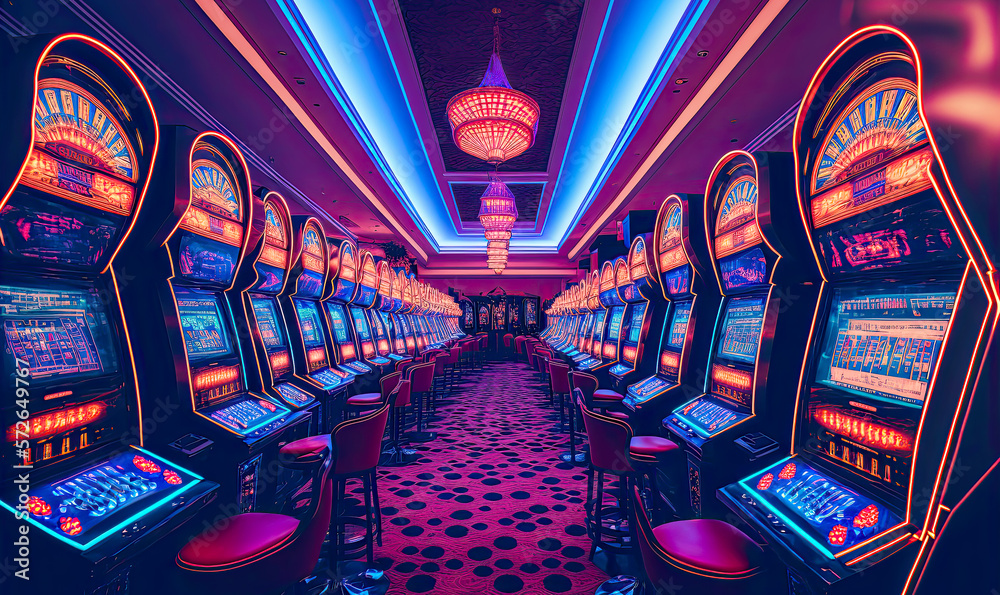
Casino games have long been a engaging form of entertainment, drawing countless of players from varied cultures around the globe. From the glitzy casinos of Vegas to the busy gambling halls of the Cotai Strip, these games serve as a link that unites people across various backgrounds. The allure of chance, skill, and gambling entices not only those seeking to win money but also those looking for a feeling of belonging.
The influence of casino games extends significantly past the gaming floor. They often reflect the social norms and beliefs of the communities in which they prosper. Games such as poker, blackjack, and the wheel game have integrated into the tapestry of popular culture, influencing everything from cinema to fashion. As we explore this intriguing intersection of gambling and society, we can gain insights into how these games shape and are shaped by the surrounding world.
Chronological Progression of Gaming Games
The origins of casino games can be followed back to historical civilizations, where gambling in various forms was widely practiced. In Ancient China, around two thousand three hundred years before Christ, a type of luck game known as Keno was common, while in historic the Roman Empire, soldiers would regularly wager on the consequences of their contests. The concept of using randomness for entertainment and income evolved over the centuries, leading to the establishment of more formal activities. By the final Middle Ages, gambling houses began to appear in European nations, particularly in the Italian peninsula, which brought forth early incarnations of popular activities still practiced today.
As betting increased fame in European regions, the 17th and 18th centuries saw the rise of gambling establishments as specialized venues for gambling. The initial official gaming venue, the Ridotto, was set up in the Venetian city in sixteen thirty-eight, offering games like Baccarat and Faro games. This period marked a major pivoting point, as gaming venues commenced to welcome not just the high society but also the growing middle-tier society. The complexity of activities increased, leading to the introduction of new rules and variations that enhanced the experience of players.
In the 19th century, the industrial revolution and changes in societal standards also transformed the landscape of gaming activities. The launch of the game of roulette and new one-armed bandits pulled in a larger audience, and gaming houses became seen as acceptable fun. This time witnessed the worldwide proliferation of gaming, as gambling houses spread from Europe to the Americas, culminating in the establishment of the famous Las Vegas Strip in the twentieth century. The progress of gambling games has progressed into the current era, integrating modern technology and online sites, rendering them available to a universal audience.
## Cultural Significance in Various Cultures
Casino games have significant social significance within a multitude of cultures across the world. In Las Vegas, the very essence of the city is woven around gaming venues, where playing is not just a hobby but a central aspect of leisure and community interaction. The dazzling lights and dynamic atmosphere attract a vast audience, showcasing how games of chance can impact local economical structures and cultural identities. This environment transforms the notion of recreation into an enriching encounter that shapes apparel, melodies, and even film.
In contrast, some communities view gambling with more caution, considering it through the lens of ethical beliefs and heritage. A case in point, in many Eastern communities, games like Mahjongg and Pai Gow are rich with history and possess significant social meanings. These games are often played during get-togethers and occasions, fostering social ties and solidifying family ties. The act of participating in these games goes past mere entertainment, reflecting ethics such as respect for elders and the value of collective enjoyment.
At the same time, in Western countries such as the principality of Monaco and Rome, casino games serve as symbols of opulence and refinement. The elegant atmosphere of these establishments attracts both visitors and locals, reinforcing a sense of prestige and rarity. The art of poker and the strategic features of games like baccarat are celebrated, molding social dynamics and cultivating an appeal that fascinates a heterogeneous audience. This highlights how casino games can simultaneously echo and influence societal views towards risk, benefit, and social interaction.
Financial Influence and Travel Industry
Gambling activities play a significant role in the economic landscape of many regions, particularly those that rely heavily on tourism. The revenue generated from gambling establishments fuels local financial systems, creating employment opportunities not only within the casinos themselves but also in related sectors such as hospitality, restaurant services, and recreation. This influx of tourists, drawn by the attraction of gambling and the overall casino experience, stimulates expenditure across multiple businesses, contributing to the economic health of the region.
The presence of casinos often leads to the construction of infrastructure, including hotels, public transit, and leisure amenities. These developments are essential in improving the overall tourist experience, making destinations more attractive to tourists. đá gà trực tiếp Additionally, many casinos contribute in local communities through support of activities and philanthropic initiatives, further embedding themselves into the social fabric of the locality. Such contribution not only supports economic growth but also fosters a positive reputation of the casino industry.
Furthermore, the worldwide appeal of casino games drives tourism competition, with regions vying to attract players from across the globe. Iconic destinations like Las Vegas and Macau have become identifiable with gambling culture, drawing millions annually. This advantage encourages creativity and diversification within the gaming industry, influencing trends in leisure and accommodation that extend beyond their borders. The consequences of this tourism extend far, impacting local financial health and cultural interactions on a worldwide scale.